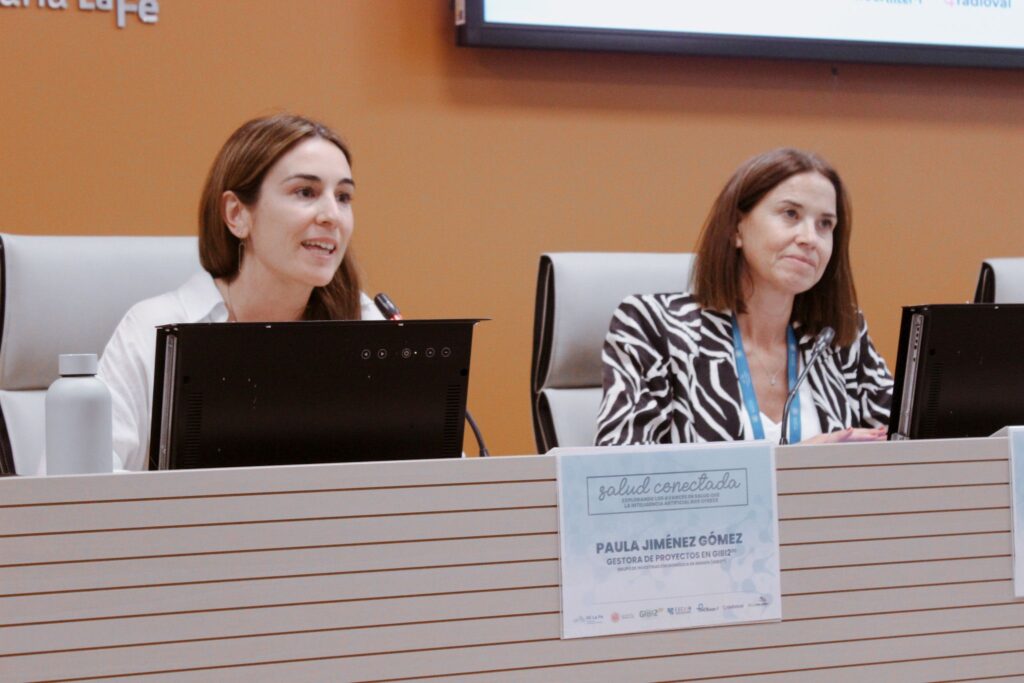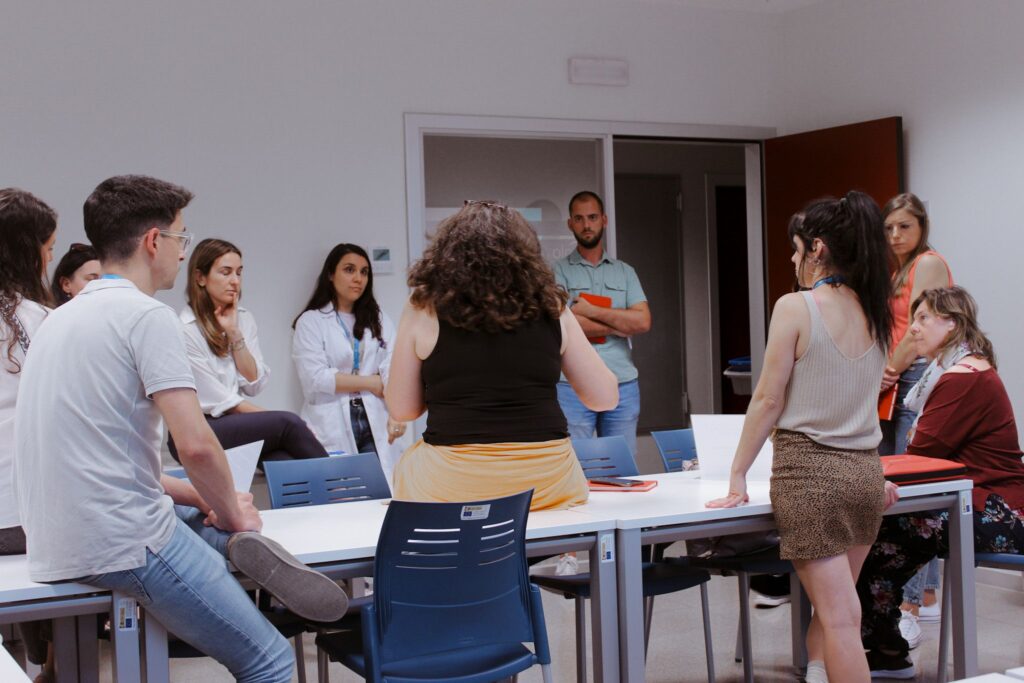The Biomedical Imaging Research Group (GIBI230) at the La Fe Health Research Institute (IIS La Fe) recently organized an event to bring their cutting-edge research closer to the general public. The session was a collaborative effort involving patient associations, researchers from IIS La Fe and the Polytechnic University of Valencia (UPV), master’s students, and citizens. The goal was to collect their perceptions and feedback on the use of artificial intelligence (AI) imaging tools to improve oncology care.
During the event, radiologists, engineers, data scientists, and management personnel from the research group shared insights into the development of AI-powered medical imaging tools and their potential to assist in clinical decision-making. They also highlighted the group’s involvement in prominent European projects, including Chaimelleon, Procancer-I, RadioVal, and EUCAIM.


The attendees actively engaged in roundtable discussions, demonstrating a keen interest in understanding the advancements in this field. As a result of the session, the participants gained a basic understanding of the development of these AI tools and even suggested elements that they believed could further improve patient care and clinical practice.
Key takeaways from the event:
- Attendees highlighted the importance of considering various factors, such as pharmacogenomics, microbiota, diet, and psychosocial elements like chronic stress or depression, in the development of AI-powered oncology tools.
- One participant noted, “If oncologists have a tool that improves cancer prediction and monitoring, it will enhance their treatment and make it less invasive.”
- The principle of explainability was emphasized as essential, with one attendee stating, “Only with quality and precise information can the patient feel secure.”